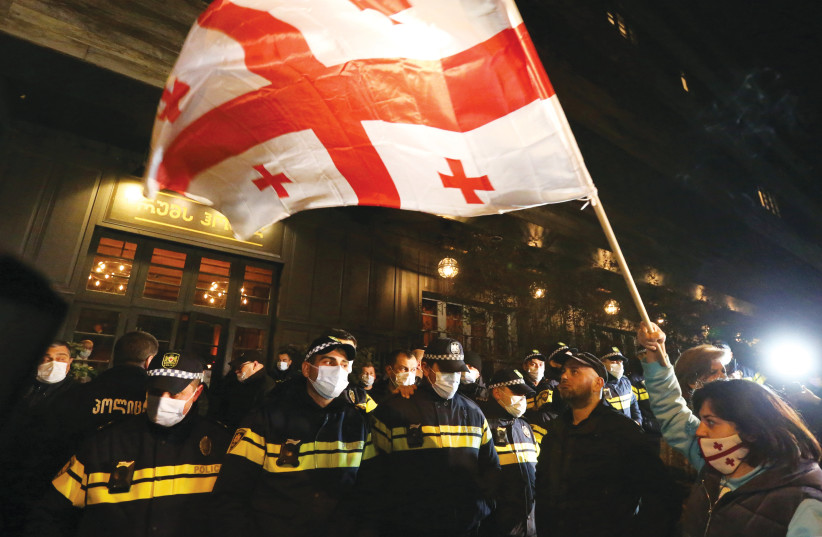The pro-Russian Georgian breakaway South Ossetia is set to hold a public referendum to fully join Russia, South Ossential parliament Speaker Alan Tadtaev told Russia's TASS news agency on Wednesday.
"We have every reason to join the Russian Federation and there are no legal obstacles to this," Tadtaev added.
"I believe that unification with Russia is our strategic goal, our path, the aspiration of the people," President Anatoly Bibilov, was quoted as saying by the press service of the United Russia Party.
"We will take the relevant legal steps in the near future. The republic of South Ossetia will be part of its historical homeland - Russia.
"If South Ossetia joins the Russian Federation, it could become a single entity with North Ossetia," said President of the Republic Anatoly Bibilov.

"There are legal steps that we must take. When we are already part of the Russian Federation, within the Russian Federation, there are procedures that are associated with the unification of subjects," Bibilov said in an interview with the Rossiya 24 TV channel.
"South Ossetia can become part of the Russian Federation as a subject of Russia. I think that the unification of Ossetia is necessary," Bibilov said.
All necessary legal procedures for South Ossetia to join Russia will be finished around April 10 to coincide with the South Ossetian presidential elections, presidential press secretary Dina Gassieva told TASS.
The breakaway state has a long complex history dating back to when the entire region was under Soviet control. Officially, South Ossetia is recognized by most countries as being part of Georgia, though Georgia has no de facto control over it.
South Ossetia, as the name implies, is inhabited by the ethnic Ossetians, as is North Ossetia-Alania, which is one of the subject republics of the Russian Federation and a sovereign part of Russia.
Wars have been fought over the area in the past, most notably the 12-day Russo-Georgian War of 2008, which saw Russia back the breakaway states of South Ossetia and Abkhazia. This war was a Russian victory and while internationally the breakaways have little to no recognition, Georgia has lost control over them.
If South Ossetia holds the referendum and votes to join, they would be the most recent nation to do so, following Crimea's vote in 2014, though the vote was and remains highly contested and unrecognized internationally.
Regarding Abkhazia, the other Georgian breakaway has voiced their support for South Ossetia's ambitions, calling a possible unification with North Ossetia a "national dream."
"They [South Ossetia] have raised this issue before... this is their historical destiny," Abkhazian Security Council Secretary Sergei Shamba told TASS.
But will Abkhazia follow suit? According to Shamba, that seems highly unlikely, with the idea having little to no support among the political echelons or the general public. Not only that, but according to him, their constitution doesn't allow it.
Rather, Abkhazia maintains its relations with Russia as an ally and strategic partner, but wishes to remain a sovereign and democratic state with the right to self-determination, Shamba told TASS.
It is also unknown if Russia wants anyone to join at this time, with a Russian official recently stating that despite the breakaway Luhansk People's Republic in eastern Ukraine's Donbas expressing interest in such a referendum, it may not be the right time to do so.
Georgian Foreign Minister David Zalkaliani said on Thursday that talk of a referendum in the Georgian breakaway region of South Ossetia on joining Russia was unacceptable, TASS news agency reported.
This is a developing story.
Reuters contributed to this report.
